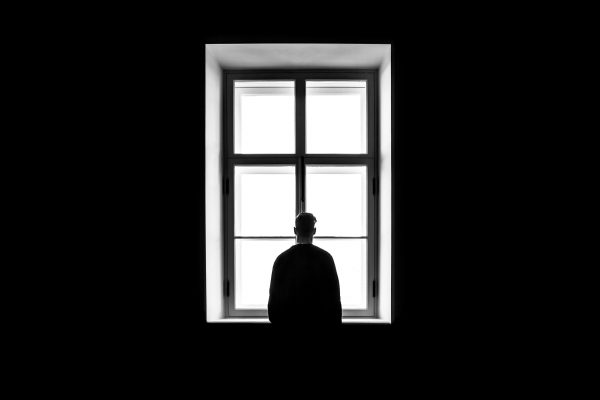With so many health gurus preaching the key to happiness and well-being, what does Islam have to say about it?
With so many health gurus preaching the key to happiness and well-being, what does Islam have to say about it?
We are so lucky to be blessed with a religion that teaches us a complete way of life. From marital relations to how and what to eat and how to conduct ourselves during war, we are guided so beautifully through the Quran and the Sunnah of the Prophet (PBUH).
My Instagram feed is full of gurus spruiking the latest health hack, diet, exercise or lifestyle practice to improve my health, get more out of the day or jump out of my bed with joy in the morning. And I’d have to admit… I’ve tried most of them. Until I realised that I was making life harder for myself. We, as Muslims, already have all the hacks, Alhumdullilah.
Well-being combines a person’s physical, mental, emotional, and social health factors. It is a way of describing how you feel about yourself and your life and your life satisfaction.
When I look at an individual’s holistic well-being, I like to go back to what I refer to as the 5 well-being pillars:
- Physical Wellbeing
- Emotional wellbeing
- Intellectual wellbeing
- Social wellbeing
- Spiritual wellbeing
Physical Well-being
Nutrition plays a big role in our physical well-being. The Prophet (PBUH) advised us to eat in moderation.
No human fills a vessel worse than his own abdomen; a few bites are enough for man to keep his body upright, but if it is indispensable, then a third for his food, a third for his drink and a third for his breath”
[Tirmidhi]
When it comes to which diet is best, keep it simple. Eat whole foods, avoid vegetable oils, processed food, and fried foods, and try and limit your sugar and dairy intake.
We are all aware of the benefits of exercise on both our physical and mental health. According to Dr Kasule (Harvard Professor of Islamic Medicine), the Prophet (PBUH) would never walk lazily but would rather do a brisk walk. He also engaged in walking and running races with his wife, Aisha. We should aim for at least 30 minutes of moderate exercise five times a week.
Good sleep is also crucial to a person’s well-being. In Islam, we are guided with sleep practices which you will find to optimise the quality of sleep you get. Prophet Muhammad (PBUH) said:
One should not sleep before the night prayer, nor have discussions after it”
[Bukhari]
This indicates that we should be winding down and sleeping soon after Isha prayer. He would also not sleep after the Fajr prayer. This follows our circadian rhythm and our natural cortisol/ melatonin cycle, and modern medicine recommends following the day/ night cycle as closely as possible. In addition, the Prophet (PBUH) told his companions that Allah blesses early morning work.
I think we have found the secret of the 5am club!
Emotional Well-being
Mental and emotional stress can affect our psychology and emotions as well as have a detrimental effect on our physical body and overall well-being. We are all stressed; it seems to be an unavoidable part of modern living and comes to us at every stage of life. The key is developing strategies that work for you to manage your stress, work on your mindset, and develop positive coping strategies.
When stressed, our sympathetic nervous system is activated (think fight or flight response). One valuable tool is to recognise when this is happening and consciously bring ourselves back into our parasympathetic nervous system. Fortunately, we have five compulsory stops during our day that force us to slow down and do this. Other than salah, this can be achieved by dhikr, deep breathing, practising mindfulness or reciting Quran. This will go a long way in ensuring our cortisol is not constantly elevated, leading to many imbalances in our bodies.
A positive mindset needs to be consistently worked on through self-talk and reflection. Often, a coach is a useful investment to make to really work on specific blocks which may hold you back from living your best life.
The purpose of this life is to test us but remember,
“.. Allah puts no burden on any person beyond what He has given him. Allah will grant after hardship, ease.”
[65:7]
So have faith and remember that Allah is there for us through it all.
Intellectual Well-being
Islam greatly encourages learning and knowledge:
Allah will exalt in degree those of you who believe and those who have been granted knowledge.”
[58:11]
It is so important for us to be open to intellectual growth for our own self-worth and value. Allah has blessed us with intelligence. It is one of the things that separates us from animals, so we must constantly seek to improve and develop in whichever areas we can. This can mean creatively as well as intellectually.
There are many ways we can support our brain health, such as staying active, getting enough good quality sleep, supplementation as well as a healthy diet, particularly making sure we are getting enough good fats and omega 3.
My absolute favourite hadith happens to refer to seeking knowledge:
Prophet Muhammad (PBUH) said,
The angels lay down their wings for the student (knowledge seekers), pleased with what he is doing; and all creatures in the heavens and on earth, even the whales in the water, ask forgiveness for the scholar.”
[Tirmidhi]
Social Well-being
According to Positive Psychology, social well-being can be defined as developing and maintaining positive interactions with others and local and global communities. I think the last few years have made it very evident that human beings are not designed to live in isolation, but rather we need each other in this complex social network to support, love and interact with. I think one of the amazing things in Islam is that we are taught so clearly our rights over each other, be it other Muslims, our neighbours, parents, spouse or children, so there is perfect guidance on how to build a strong, positive society if only we take heed.
It is also important to look outside our needs and help others without expecting anything in return. Our reward is with Allah, so we should seek to help those in need at any and every chance that we are able. Research shows that helping others increases our serotonin levels, lowers depression and increases our happiness.
Spiritual Well-being
As Muslims, our spirituality is the most important factor in our well-being. We cannot expect to live a happy, fulfilled life without having a strong relationship with Allah. Submission to the One who created us is our purpose in life, and without it, we are simply lost.
Spirituality will look and feel different to every one of us because we each have our own connection with Allah. We know we must fulfil our prayers, fast in Ramadan, do Hajj, and pay Zakat. These have their blessings and lessons for us within them.
Two other forms of worship that I think are worth mentioning are meditation and du’a. Meditation has so many recognised benefits, so using it to reflect on the greatness of Allah and gratitude for all we have can have a transformative effect. Start with five minutes in the morning before work consistently, and you will see the change it makes in your life.
Du’a is a direct conversation with your Lord where you can ask for anything you desire because nothing is too much for Him. I didn’t appreciate this gift until a few years ago after taking the Visionnare du’a course, and it changed my whole mindset. From asking for the bare minimum to now opening up my heart and mind, I have seen the changes happen in my own life.
Well-being is an interplay between many facets of our life, and we need to be able to assess and reflect on each area so that we can improve those which may be lacking. Nothing is more enlightening as you age than realising the wisdom behind Allah’s commands and guidance. By combining our modern knowledge with religious wisdom, InshaAllah we have it within us to balance all of these areas and live a truly fulfilling life.





